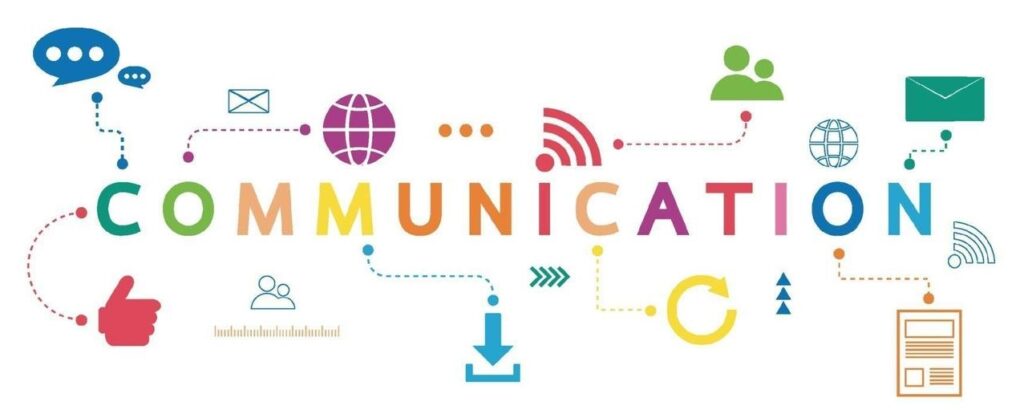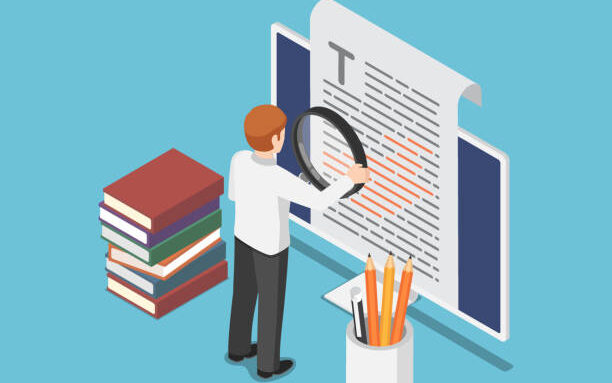Ever get curious about how to be a successful technical writer and what skills you need for it? If the answer is yes, then you are at the right place to put a full stop to your all questions related to the subject. Here you will get a detailed explanation of the required technical writing skills you can learn to excel in your writing career.
Let’s start with the basics.
What does technical writing mean?
The process of simplifying complex technical instructions into an easy and understanding manner so that a large number of readers can grasp that knowledge without googling each technical term after every other line.
For example, a user manual for any device or detailed steps on assembling any product, the troubleshooting guides, handbooks for employees, manuals to understand policy terms etc. Technical writing is forthright and an efficient way to explain something and how it works.
Technical writing skills are continually varying with the growing demands and needs of technology. It becomes difficult to identify the exact skills needed to achieve that perfect content but not to worry, here you will get easy explanations and in-demand skills, how to hone them and what they entail.
Here are the top 10 skills all technical writers should know and own.
1. Writing skills
The golden rule of technical writing is presenting the content in a precise and clear manner so the information should remain east-to-interpret and explains well the principles of the product and how it works.
Since technical writers write a variety of technical content and must know different styles and have a flexible approach towards them.

The most common content they must be aware of includes:
- User manuals – This defines how to use any product or device in an easy and detailed manner to the end-user. This could be an online help or a user guide.
- Understanding the mindset and knowledge of the audience such as a user manual for a Monitor can include technical terms if meant for computer technicians, but that won’t work if the audience is end-users. The purpose must be clear. The steps and instructions must be in a systematic manner.
- Technical reports— Maintaining complex information about any product such as its development, history and progress in an understandable format known as Technical reports.
- Procedures and Policies— To provide a safe and productive working environment, documenting guidelines for the appropriate usage of industry assets and technology is important and included in this category of important technical writing skills.
- Additionally, documents like case studies explore the end-user interaction with the product and analyze the intricate technical information for future improvements.
Also, while writing always ensure to use an Active voice, and plain sentences, avoid jargon and over usage of pronouns with good grammar.
To make a document more comprehensive using diagrams, visuals are preferred when making reports and manuals.
2. Learning Communication skills
All technical writers are technical communicators which means they are experts in identifying the knowledge and understanding of their readers to write accordingly.

Most of the projects given by an organization and clients may need more than one tech writer to complete the task before the deadline.
To that end, here are some important communication skills in technical writing a writer should refine:
- Clarity- Being clear and concise while writing and communicating with SMEs’. Straightforwardness and well knowledge of the product are essential as well.
- Purpose- Technical writers are well aware of the importance of communication before interacting with the targeted audience along with the purpose of what they share and what problems they are aiming to address for the end-users.
- Openness- There’s always a positive tone to avoid negative remarks or instructions.
- Activeness- It involves active listening and planning before contributing to the written discourse.
3. Researching skills
Researching, in general, refers to the ability to search for, organize, exact, locate, evaluate and use the correct and updated information relevant to the topic.
So, another important technical writing skill is extensive research, without it, the process of writing good technical content can not be completed. This ensures to document each feedback from subject matter experts and end-users.

Important things to keep in mind while researching are outlining, conducting an investigation, using credible sources, systematically managing resourcing etc.
Here comes analyzing the audience based on how well the target audience is aware of technical terms, what are their needs and interests and the occupation they do. This helps to understand whether the text should be complex and full of technical terms or at least mechanical.
In addition, understanding the user is equally significant. This includes the readability of technical documents of any product which means an easy explanation of how to use any product for the target users.
Since it’s such an important skill in writing, one should always look to constantly improve it. Think about the subject, and questions related to it before you do the research. Be specific and always keep it as simple as it can be. Read the relevant content but narrow search results.
4. Knowledge and usage of correct technical writing tools
Being well aware of the tools to write and manage the tech content, such as Microsoft (MS Word), for the files, it could be RoboHelp and for formatting, it could be FrameMaker etc also plays a vital role in levelling up your content game.
Other writing tools like Grammarly, Hemmingway, Madclap and Freemind can be used for content writing. These tools will help to rectify all the grammatical errors and allow you to modify the content to make it more readable and presentable.

Technical writing doesn’t only includes plain writing but creating a visual content ie, video or audio content because it makes a document more useful, screenshots, graphics. So, Mircosoft Visio, Faststone capture and Adobeshop are some popular programs to help while creating high-quality content.
There are many choices out there, one should need is to learn about them and start using them correctly to write impressive technical content.
5. Basics of web designing
Up until recently, technical writing used to be done in plain, simple text editor tools such as Notepad etc. However, with the constantly changing world, it won’t harm to bring new innovative designs.
The essential elements of learning in web designing are working links, good navigation, and effective and concise pages with correct spellings and grammar.

There are many ready-to-use templates any writer can use as per their liking. It will make the plain black and white documents more interesting and interesting things tend to attract more audience.
So, here’s to learning basic web designing!
6. Editing skills
As much as it is important to write clearly and precisely, editing skills also help to make it more significant.
This includes editing styles and formatting tools. The most important technical writing skill in editing is proofreading. Let’s dive deep into it to understand it fully.
Proofreading is to examine any document to find and correct errors such as grammar, punctuations, repeated words, spelling or any typographical mistakes. The tone of voice should be appropriate and the usage of technical terms should be not too difficult to understand.

Along with proofreading, comes reviewing the content before finalizing it. Always ensure to do a read-through before you get into the details and remember to break the long sentences.
The usage of diagrams and visuals makes any technical report or manual more legible to the target audience. Better editing skills also include a good command of the English language, copyediting and usage of related words.
If you are keen to learn more about editing technical content, check out this Designing course by Henry Harvin.
7. Mastering the Art of Teamwork
As the saying goes “Teamwork is the Dreamwork”.

Even though the writing is considered to be a desk job there are times when a technical writer needs to collaborate with other employees, editors, developers, designers and diverse target audiences. So, working in teams by listening to and respecting other people’s ideas regarding the subject plays an important role here in learning this specific technical writing skill.
While writing, technical writers must be attentive, and aware of the subject. They should know how to manage different technical documentation projects and deliver them promptly.
Additionally, the art of persuasion comes in handy here which means finding a common ground with developers and subject matter experts to value their saying and include their suggestions accordingly.
8. Sociology and planning skills
As mentioned earlier that any technical documentation is created for users of some services or products and each product and service has its sole user base and target audience, that’s why the top task of a tech writer is to identify who the end-users are and then plan further keeping that in mind.

The best example to understand it more efficiently could be the Business to consumer (B2C) and Business to business (B2B) user manuals/guides. In B2C, the instructions and illustrations must be in a very simple language. While in B2B, it works even if the language is complex and full of technical words.
Sociology allows you to plan and write a document in such a way that it reaches the maximum number of people using that particular service or product. Planning also helps to set the right goal and it increases the efficiency of an organization.
9. Interviewing, another key tech writing skill
With every new technical writing project, there will be a set of information given by the manufacturer, clients or company but they may not be able to convey it properly. But, to write any technical content the information regarding the subject should be clear to the writer to avoid any confusion.

Hence, to write it successfully you’ll ask questions to clear doubts and the best way to ask those questions would be to conduct an interview with the subject matter experts. While doing that the 3 main key points will be:
- Be prepared, take limited time and start with simple questions to create and maintain a comfortable atmosphere while interviewing.
- Always review the gathered information and make corrections wherever needed.
- It is necessary to avoid miscommunication which may lead to a delay in the final product, so it’s better to re-do research if it lacks somewhere, gather all information and prepare a set of questions beforehand if you are contacting any SME regarding the subject if needed.
10. Usability testing skills
Last but not the least, a writer must be accurate especially when it comes to technical writing. It means testing the written instructions to see if they work correctly as mentioned such as assembling any product if it’s a user manual by reading the given steps.

This helps a technical writer to observe the subject more clearly from the audience’s point of view as well as revise the areas which need improvement.
Furthermore, technical information is supposed to be complex and a technical writer must know how to break it down accordingly for a common person.
CONCLUSION
To grow as a tech writer, these were the list of top 10 technical writing skills which will certainly help anyone to boost their career. Now, it doesn’t mean that an aspiring writer should know and excels in all these skills but with consistent learning, and effort it can be achievable and beneficial in long run.
There’s a constantly increasing demand for technical writers in different spheres, that’s why a writer should choose what is interesting to them? Because finding your niche will give you great results and allow you to achieve your desired goals.
Along with the skills, learning it professionally with the help of any top institute would be a wise decision.
- Henry Harvin is the top-ranked institute for writing. There are many advantages of doing the technical writing course from Henry Harvin.
- It provides a 9-in-1 course which includes Training, various projects regarding each topic, and an internship program of 2 months to 8 months followed by certification and placement. There will be many boot camps and the best thing is it understands the busy schedule people have these days while keeping up with jobs and learning side by side, it allows you to view recorded sessions and learn at your pace.
CAREER BENEFIT
The main motive for reading any blog and doing the course is to get a good job and earn a fine living out of it. Henry Harvin covered this very well. By end of the course, you will be eligible for writing a thesis, perfect quality technical content and Research papers. It also opens doors for high-paying Job opportunities in technical writing.
Now, If you’re keen to know more about how to be a technical writer, you are welcome to check out the Technical writing course at Henry Harvin.
This particular course provides vast learning and well understanding of technical content and focuses on how to compose different types of reports, plans, manuals and so forth.
This will not only explain all the theoretical knowledge gained by reading this blog now but will also help you to apply it practically to various types of assignments trainers give during the time of course.
Not only technical writing, but you can also explore other writing courses if that’s what matches your interests. Here’s the list for you:
- Content Writing Course
- Content Strategy Course
- Academic Writing Course
- Master Creative Course
- Research writing course
FAQ
No. Anyone who loves writing and wishes to make a living out of it could become a technical writer just by learning the basics and required skills
It wouldn’t harm to be aware of technical terms but for technical writing, it’s completely okay if you’re not a techy person. The goal of technical writers is to convey technical knowledge to a common person as well. Also, with each service or product, there comes a new set of technical terms. This allows for learning more while working.
Undoubtedly, in this modern era, technical writing has become a well-paying occupation. Generally, while working for an organization one should earn up to 4-5 lakh per annum. This may vary as per the years of experience as a technical writer and expertise in a similar field.
Yes. After the pandemic we recently witnessed, working from the comfort of the home seems one of the best options. The great news is there are multiple platforms which offer freelancing jobs such as LinkedIn, Fiverr, Upwork etc.
Learning the above-mentioned skills will help immensely in mastering technical writing. Learning at your own pace and understanding the basics of the subject is the main key to becoming a good tech writer.
Here’s to learning and growing each day!







